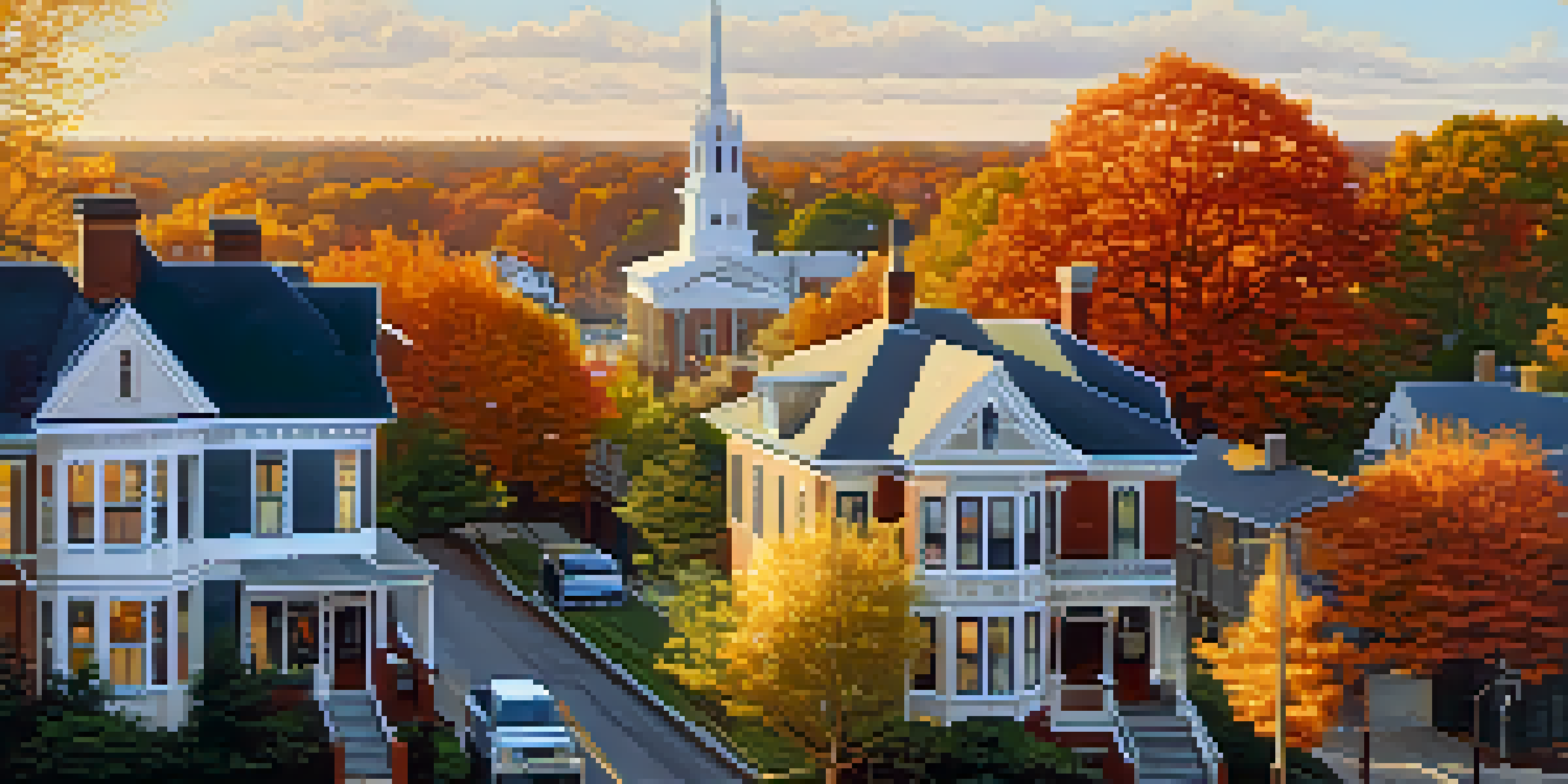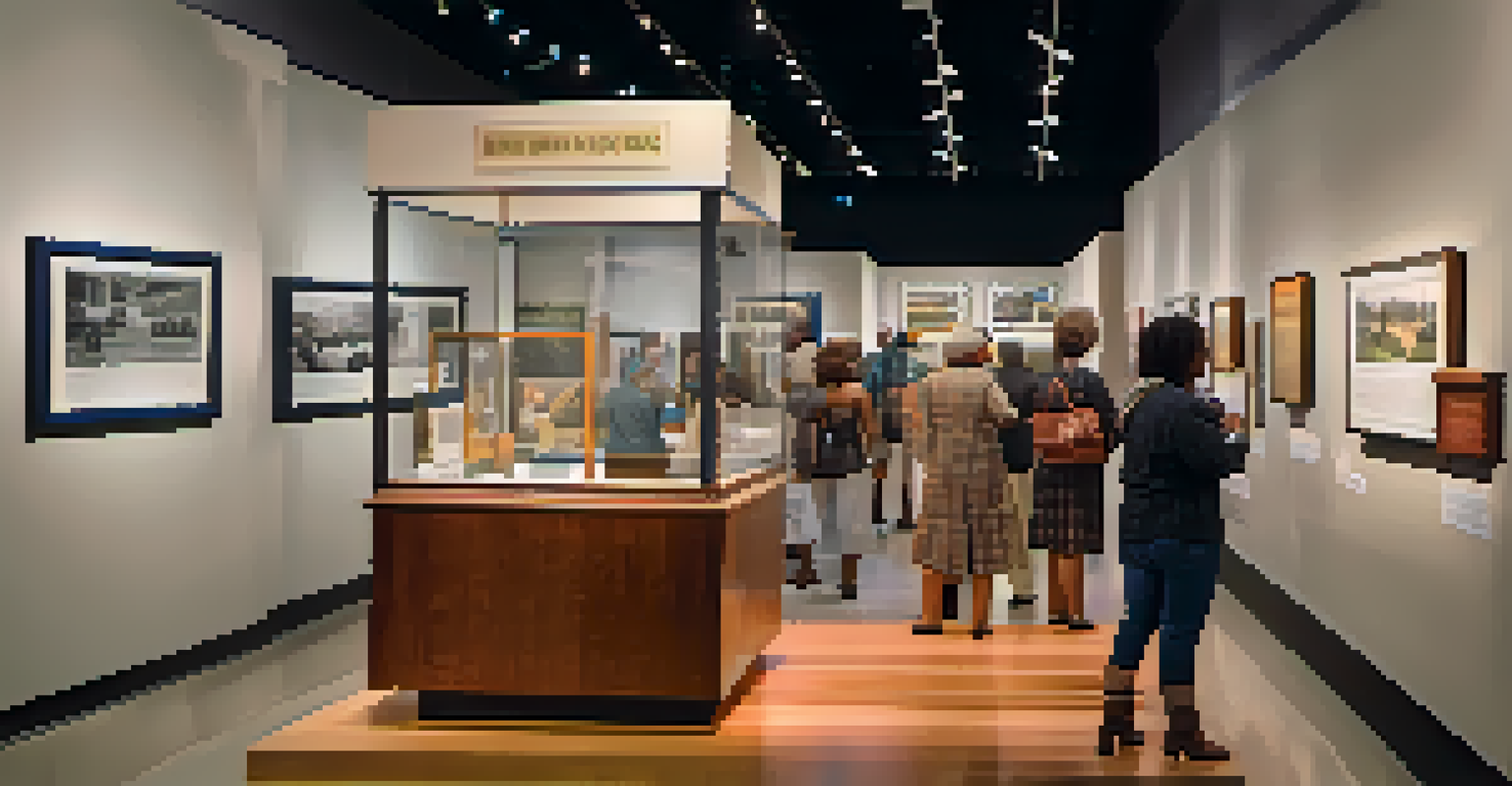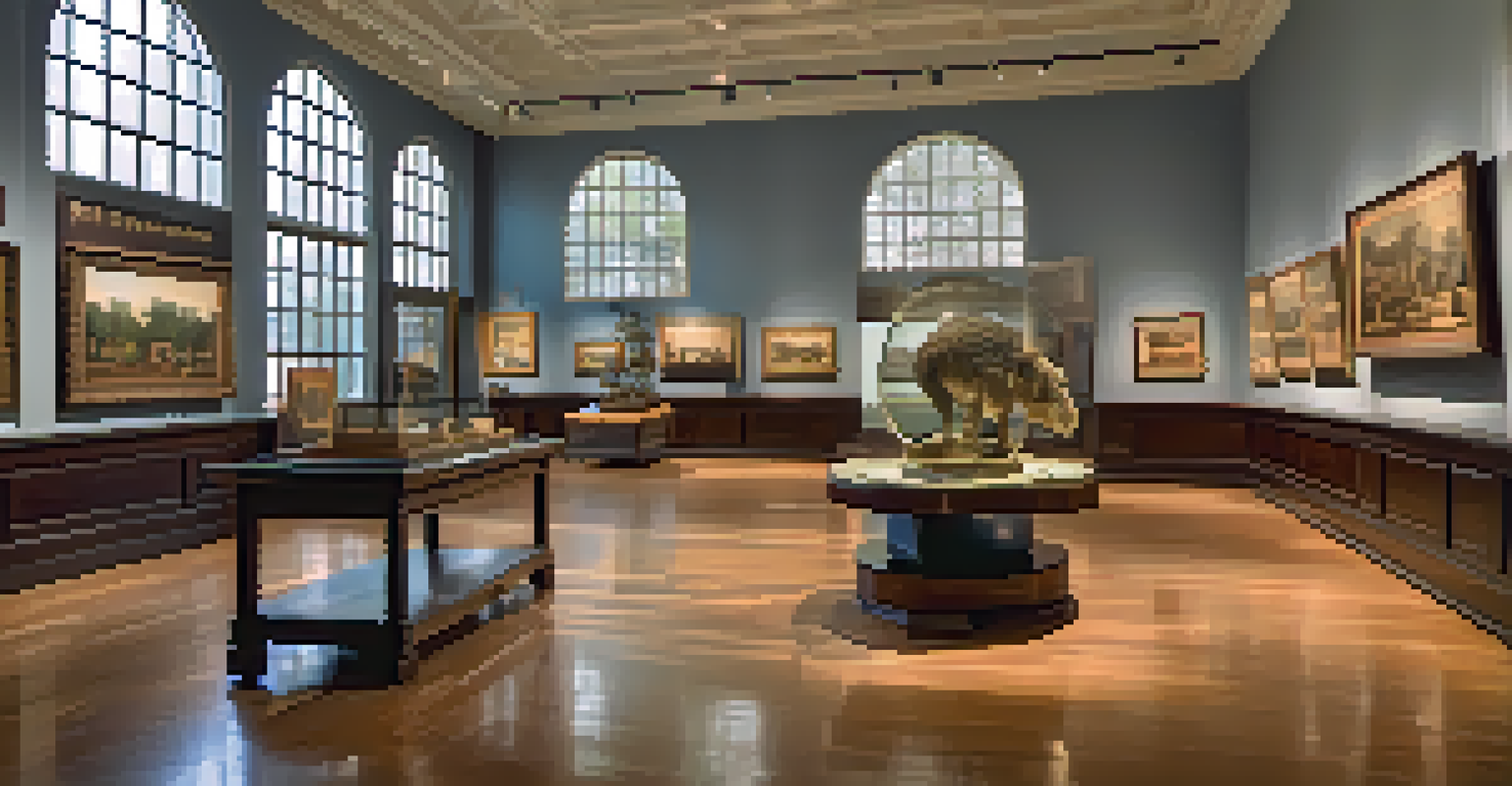Preserving Raleigh's History: Museums and Heritage Sites

The Importance of Preserving Raleigh's History
Raleigh's history is a tapestry woven with stories of its people, culture, and development. Preserving this history allows future generations to understand their roots and appreciate the journey that shaped their community. It's not just about remembering the past, but about fostering a sense of identity and belonging.
History is not a burden on the memory but an illumination of the soul.
As the capital of North Carolina, Raleigh is steeped in historical significance, making it crucial to maintain its heritage. This preservation efforts ensure that the stories of its diverse residents are told and celebrated. Museums and heritage sites serve as vital resources for learning and exploration.
By engaging with history through these institutions, residents and visitors alike can gain a deeper understanding of Raleigh's evolution. This connection to the past enriches the present and inspires a commitment to the future.
A Tour of Raleigh's Iconic Museums
Raleigh boasts a variety of museums that cater to different interests, making it a cultural hub. The North Carolina Museum of Natural Sciences, for example, offers an engaging look at the state's natural history, featuring everything from dinosaur fossils to live animal exhibits. It's a great place for families to explore and learn together.

Another gem is the North Carolina Museum of History, where visitors can delve into the state's past through interactive exhibits and artifacts. From Native American history to the Civil Rights Movement, the museum captures the essence of North Carolina’s narrative. Each exhibit tells a story that resonates with the local community.
Raleigh's Rich Historical Tapestry
Preserving Raleigh's history fosters a sense of identity and belonging for future generations.
For those interested in art, the North Carolina Museum of Art showcases an impressive collection that spans centuries and styles. With stunning outdoor installations and rotating exhibitions, it invites visitors to appreciate creativity in various forms. These museums collectively enrich Raleigh's cultural landscape.
Heritage Sites: A Glimpse into Raleigh's Past
Beyond museums, Raleigh is dotted with heritage sites that offer a tangible connection to the past. The State Capitol, for instance, is not only an architectural marvel but also a site where important decisions were made throughout North Carolina's history. It's a must-visit for anyone interested in local governance and heritage.
The past is never dead. It's not even past.
Historic Oakwood, a beautifully preserved neighborhood, showcases Victorian-era architecture and offers a glimpse into 19th-century life. Walking through its tree-lined streets feels like stepping back in time, allowing visitors to appreciate the city's architectural evolution. Each home has its own story, contributing to the area's charm.
Additionally, the Raleigh City Museum highlights the city’s evolution from its founding to the present day. It serves as a community archive, preserving photographs, documents, and artifacts that tell the story of Raleigh's residents. These heritage sites create a rich narrative that connects the past to the present.
Community Engagement in Historical Preservation
Community involvement is essential in preserving Raleigh's historical sites and museums. Local organizations often host events, workshops, and volunteer opportunities that encourage residents to connect with their heritage. This active engagement fosters a sense of ownership and pride in the community's history.
Educational programs offered by these institutions are designed to inspire younger generations. By involving schools and local groups, they create a platform for learning about history in an interactive way. This not only helps to educate but also to cultivate a passion for preservation among youth.
Museums as Cultural Hubs
Raleigh's museums provide engaging experiences that educate visitors about the state's diverse history.
Moreover, community members often contribute personal stories and artifacts to museums, enriching the narrative further. This collaborative approach ensures that diverse voices and perspectives are included in the historical record, making it a more inclusive representation of Raleigh's heritage.
Exploring Raleigh's Historic Neighborhoods
Raleigh's historic neighborhoods, such as Boylan Heights and Mordecai, offer a unique opportunity to explore the city's architectural history. Strolling through these areas, you can admire beautifully restored homes and learn about the families that once inhabited them. Each street has its own story, adding depth to the city’s charm.
The Mordecai Historic Park, home to the oldest house in Raleigh, provides guided tours that illuminate the lives of its early residents. Visitors can walk through the grounds and engage with knowledgeable guides who share fascinating anecdotes. It's a fantastic way to experience history firsthand.
Exploring these neighborhoods not only enriches our understanding of Raleigh's past but also encourages local economic support. By visiting shops, restaurants, and cultural sites within these historic areas, you contribute to their preservation and vitality, ensuring they remain vibrant for future generations.
Challenges of Historical Preservation in Raleigh
While preserving history is crucial, Raleigh faces challenges in maintaining its heritage. Urban development often threatens historical sites, as new construction can overshadow or even replace significant structures. Balancing growth with preservation requires thoughtful planning and community input.
Funding is another significant challenge for museums and heritage sites. Many rely on grants, donations, and ticket sales to sustain their operations. Ensuring adequate resources to maintain and update exhibits is vital for keeping history alive and accessible.
Community's Role in Preservation
Active community involvement is essential for maintaining Raleigh's historical sites and fostering local pride.
Moreover, raising awareness about the importance of preservation is key. Many residents may not realize the historical significance of certain sites or the stories behind them. Education and outreach efforts are essential to garner community support and ensure that history remains a vibrant part of Raleigh's identity.
Future of Raleigh's Historical Preservation
Looking ahead, the future of Raleigh's historical preservation is promising, thanks to community efforts and innovative approaches. New initiatives are emerging that focus on inclusive storytelling, ensuring that all voices are represented in the city's narrative. This commitment to diversity strengthens the community's connection to its history.
Technological advancements also play a role in preservation. Virtual tours and digital archives make history accessible to a broader audience, allowing people to engage with Raleigh's heritage from anywhere in the world. These tools can spark interest and inspire visits to local sites.

Ultimately, the future of preserving Raleigh's history lies in collaboration between institutions, local government, and the community. By working together, we can ensure that Raleigh's rich history remains alive and vibrant, celebrating its past while embracing growth and change.